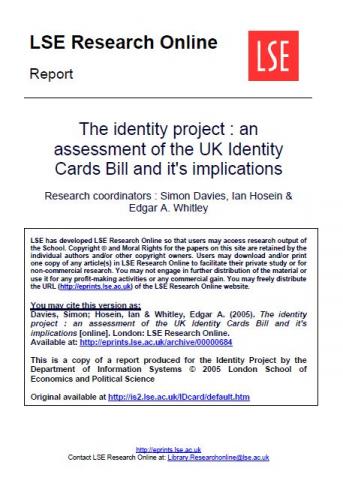The government's identity card proposals have far-reaching implications. The creation of a nation-wide population database on such a scale and with such complexity has rarely been attempted anywhere in the world. It is not surprising, therefore, that the proposals have sparked a lively debate throughout British society. The Government asserts that its version of a national identity system offers the potential to combat the threat of terrorism, identity fraud and illegal working.
Critics of the proposals warn that the scheme is fraught with challenges and pitfalls. It is of utmost importance that we reconcile these views and find a constructive way forward. Six months ago the LSE began a wide-ranging research project intended to resolve these issues. More than a hundred experts, business leaders, and research staff from across the LSE joined forces with colleagues throughout the world to produce a comprehensive analysis of the scheme's implications.
The report's conclusions are first, that, the scheme will involve considerable expenditure. Second, the proposals will alter the nature of British society. The proposals involve important choices that necessitate a wide ranging national dialogue. The LSE's report is an important contribution to that dialogue. The report also outlines a possible alternative system that promises to be flexible, less expensive and as friendly to civil liberties and privacy as any card system can be in the modern age. It also creates a consumer based platform for the development of egovernment and e-commerce services. We hope the government will be prepared to reflect on the analysis, and the implications for their own proposals.


